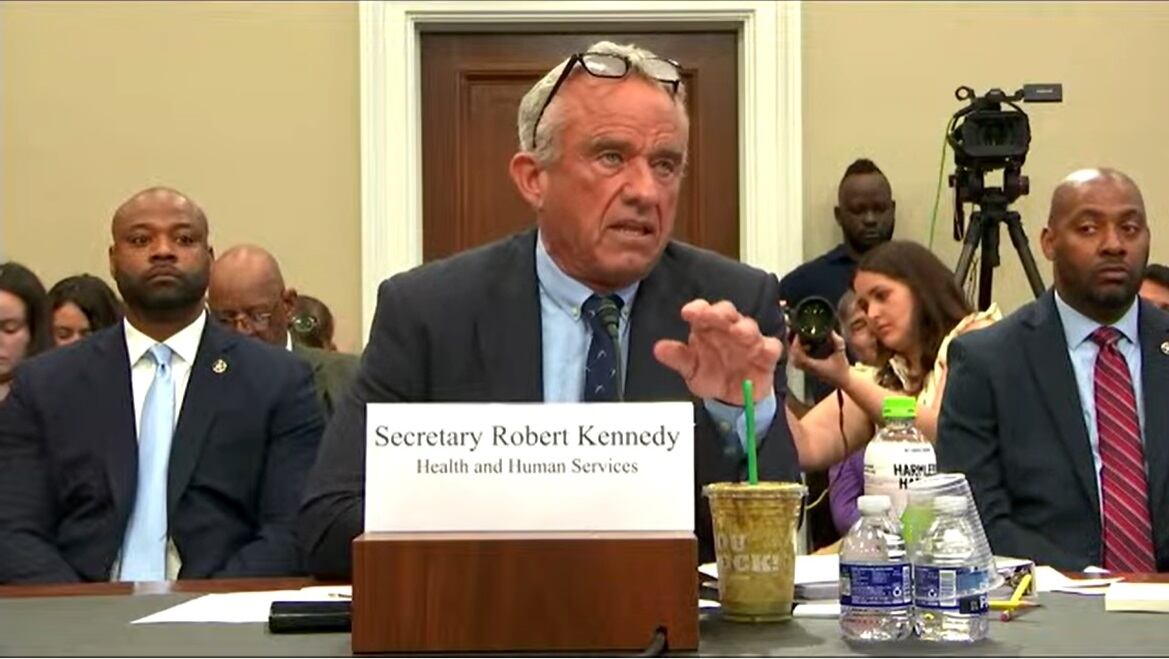Multiple members of Congress this week lauded HHS Secretary Robert F Kennedy Jr’s efforts to “make America healthy again” by removing select synthetic dyes and “other junk chemicals” from the US food system, but others questioned whether FDA’s recent actions were based on science and safety.
During a House Appropriations sub-committee meeting on Wednesday to review the Trump administration’s fiscal year 2026 budget proposal, several Representatives skewered Kennedy for the elimination of roughly 20,000 jobs at the Department of Health and Human Services under his watch. They also took aim at the $40 billion in cuts outlined in the department’s draft budget as well as a proposed reorganization that could include the creation of a new Administration for Healthy America, which would allocate $500 million to support Kennedy’s Make America Healthy Again initiatives.
Kennedy dodged questions about the reorganization by citing a court order that he was not to talk about it.
He also defended his nutrition positions and plans for HHS in several exchanges with Representatives, some of which were heated, and many of which included his characteristic doublespeak.
Congressman: ‘We want to make sure that FDA has done due diligence to ensure the safety of these replacement colors’
Among the most notable, and controversial, actions by HHS under Kennedy’s leadership and discussed in the hearing is the move to phase out select synthetic colors from the food system by the end of 2026 and the subsequent “fast-track” approval of three alternative natural dyes.
When questioned by Republican Tennessee Representative Chuck Fleishmann about the scientific basis for each of those decisions, Kennedy cast both as “really important accomplishments,” but did not provide substantive support for either move.
Rather, he said, “we think we have good science that links almost all these dyes with ADHD, with neurological injury, with cancer.”
Fleishmann, whose district is home to several snack manufacturers, noted “with respect” the synthetic colors targeted by HHS “have been approved by FDA and have been deemed safe for any years.”
He simultaneously questioned whether the recently approved natural colors underwent as rigorous of a safety review as the synthetic options they are meant to replace.
“We want to make sure that FDA has done due diligence to ensure the safety of these replacement colors,” he said.
Kennedy did not speak to the scientific rigor of the natural dyes’ safety review, but rather responded that they were fast-tracked at the request of industry and represent the FDA’s willingness to work with manufacturers to meet the needs of each group.
“We found the food industry very, very receptive” to removing synthetic dyes, and some, “like Tyson’s Food, have already eliminated them because of our talks. But they asked us to do one thing: They said, ‘Can we try to fast-track the vegetable dye substitutes that we need?’ And we have fast-tracked those, and we’ve already got them approved,” said Kennedy.
He added that FDA will continue to work with industry and is “happy” to work with Congress, including Fleischmann, to ensure there are cost-effective ingredients for manufacturers.
While some food manufacturers are complying with FDA’s plan, others are pushing back through their trade groups, including the National Confectioners Association. Still other companies may not even try to reformulate without synthetic colors because there is no enforcement mechanism or consequence if they do not, suggested a former FDA official.
Should schools serve ultra processed food?
Kennedy reiterated his negative view of ultra processed food, but gave conflicting assessments about how FDA could handle them.
For example, Texas Representative Jake Ellzey lamented that his son’s school only serves “highly processed, frozen food” that is reheated and “inedible,” rather than the “home cooked meals” he remembered from his school days. He asked Kennedy what HHS could do to return to schools “local control on figuring out what is best for the local kids.”
Kennedy responded that FDA has a research capacity to give “categories of food” and “very simply, basic” guidance such as “don’t eat anything that comes in a package,” or “don’t eat anything with chemicals on it that you can’t read” or “anything with more than three ingredients,” and “sending that out and letting people solve the issue of what exactly makes sense in their locality.”
“Ultra processed food is genocide on the American Indian and we have to end it.”
HHS Secretary Robert F Kennedy Jr
Many schools do not have kitchens or the correct equipment and budget to prepare meals from scratch – or even quick scratch – and therefore rely on packaged options that they can safely serve chilled, at room temperature or reheated, if they have the capacity.
Kennedy also said one of his “big priorities will be getting good food, high quality food and traditional food onto” Native American reservations because “ultra processed food is genocide on the American Indian and we have to end it.”
He explained that Native tribes in Arizona used to have long lives but now have “among the shortest” because of high rates of diabetes and chronic obesity.
“Right across the border in Mexico,” native tribes “are still long lived. They have no diabetes, no heart disease, no obesity, because they are not being fed ultra processed food,” he explained.
Where is the line between personal choice and federal oversight for ultra processed foods?
Despite Kennedy’s negative views about ultra processed foods, he suggested Americans were free to eat them if they wanted.
“If you want to eat a Twinkie, if you want to drink a Coca-Cola, you should be able to do that. We are a free country,” he said.
He added: “You ought to know it may increase your cancer risk and that it may increase your risk of diabetes. And so we are going to study each of these ingredients, starting with the most common ones, the greatest suspected culprits, and we are going to tell them ones that are so bad they should be taken away and we are going to work with the industry to get rid of them. And the other ones, we are just going to tell people so they can make an informed choice.”
Maryland Representative Andy Harris said he was “1,000% behind” Kennedy “on nutrition” and the goal of focusing NIH efforts on improving the nation’s health and putting “some meaning in the word ‘nutrition’” in the Supplemental Nutrition Assistance Program.
Several states have proposed pilot waivers to prohibit the use of SNAP funds on soda and confections – a move that some nutrition advocates and industry stakeholder say unfairly limits choice, and which some might argue contradicts Kennedy’s statement that “we are free country.”




